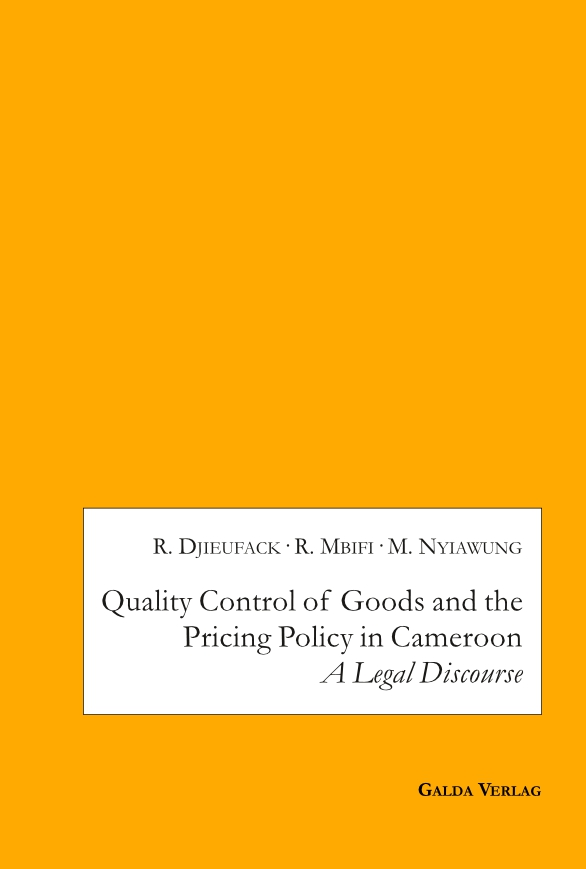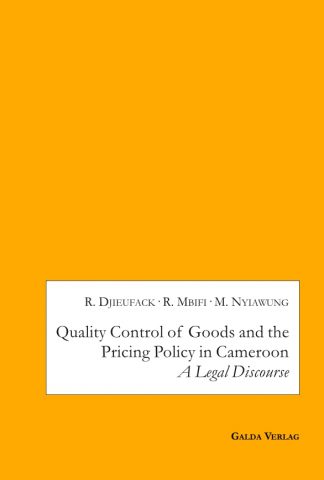Description
This book highlights the hurdles that beset the control of quality and prices of goods in the local markets in Cameroon. The proliferation of goods in the formal and informal sectors of the Cameroonian economy still stands as a challenge over the quality of goods and the pricing policy. This book is justified in addressing the pertinent problems of commercial and consumer buyers’ dissatisfaction over the poor quality of goods and discriminatory prices in the market. This study is therefore written at a time when there is a current incessant outcry from buyers of goods as a result of bad business malpractices committed by unscrupulous sellers in the Cameroonian market.
Though much emphasis has been laid on the commercial buyer as governed principally by the OHADA Law, the primary objective is to measure business practices in theory and in real commercial life. Using an in-depth analysis of primary and secondary data, the authors strongly advocate for the fact that the seller is bound to take responsibility(caveat venditor) for poor quality and the discriminatory prices of goods that are not in conformity with contractual stipulations and the statutory laws in force.
Though much emphasis has been laid on the commercial buyer as governed principally by the OHADA Law, the primary objective is to measure business practices in theory and in real commercial life. Using an in-depth analysis of primary and secondary data, the authors strongly advocate for the fact that the seller is bound to take responsibility(caveat venditor) for poor quality and the discriminatory prices of goods that are not in conformity with contractual stipulations and the statutory laws in force.


